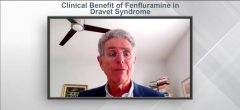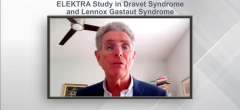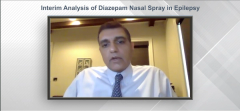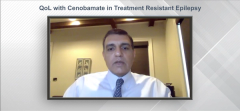
BELIEVE Trial: Developmental and Epileptic Encephalopathies
Episodes in this series

Results from the BELIEVE 1 study, an open-label clinical trial evaluating the safety and efficacy of cannabidiol as a transdermal gel in adolescents and children with developmental and epileptic encephalopathies.
Amit Verma, MD: CBD [cannabidiol] is a treatment that has gained prominence over the past several years. Historically, CBD treatment started as extracted marijuana derivative compounds from plants that were grown. The FDA approved Epidiolex a few years ago for treatment. Epidiolex is a liquid given to patients with the help of a stopper. The medication is basically squirted into the mouth. In some patients, it can be quite hard to administer, because patients who have developmental delay due to these epileptic encephalopathies are not very cooperative. It can be difficult to administer to those patients.
The purpose of the BELIEVE 1 trial was to assess the efficacy and safety of a transdermal gel. It can be applied superficially to the skin and you can avoid having to administer it orally. The transdermal gel was applied in different doses, twice daily. In this abstract that was presented at the AES [American Epilepsy Society Annual Meeting], the authors talked about the safety information with the medication. This was an open-label trial, so they didn’t have a comparator group.
The overall efficacy was thought to be quite good, and the safety profile was quite good as well. The most common adverse effects were, as you would expect, local skin irritation or dryness. This was a study done over a sustained period of time. If I remember correctly, it was over 26 weeks, so the transdermal gel was quite an effective and safe method of treatment in these patients who otherwise would not be able to get the oral solution with the stopper that is typically used.
A lot of patients who have cognitive impairment, developmental delay and epileptic encephalopathy are often very difficult to control and medically intractable. There’s a lot of interest on the part of caregivers in using CBD products in this patient population. This was a good study in which they showed that CBD doesn’t have to be administered orally. It can be administered using this transdermal gel with good efficacy and safety results.
The real-world significance is in patients who are unable to take the oral solution. This is a very viable and good method of treatment with which you can still use CBD in these patients and give it in the form of a transdermal gel. The nice thing is that they’re still able to use CBD. The efficacy data are not presented in this abstract, but the authors said that the efficacy data were quite good in these patients as well.
Newsletter
Keep your finger on the pulse of neurology—subscribe to NeurologyLive for expert interviews, new data, and breakthrough treatment updates.




















